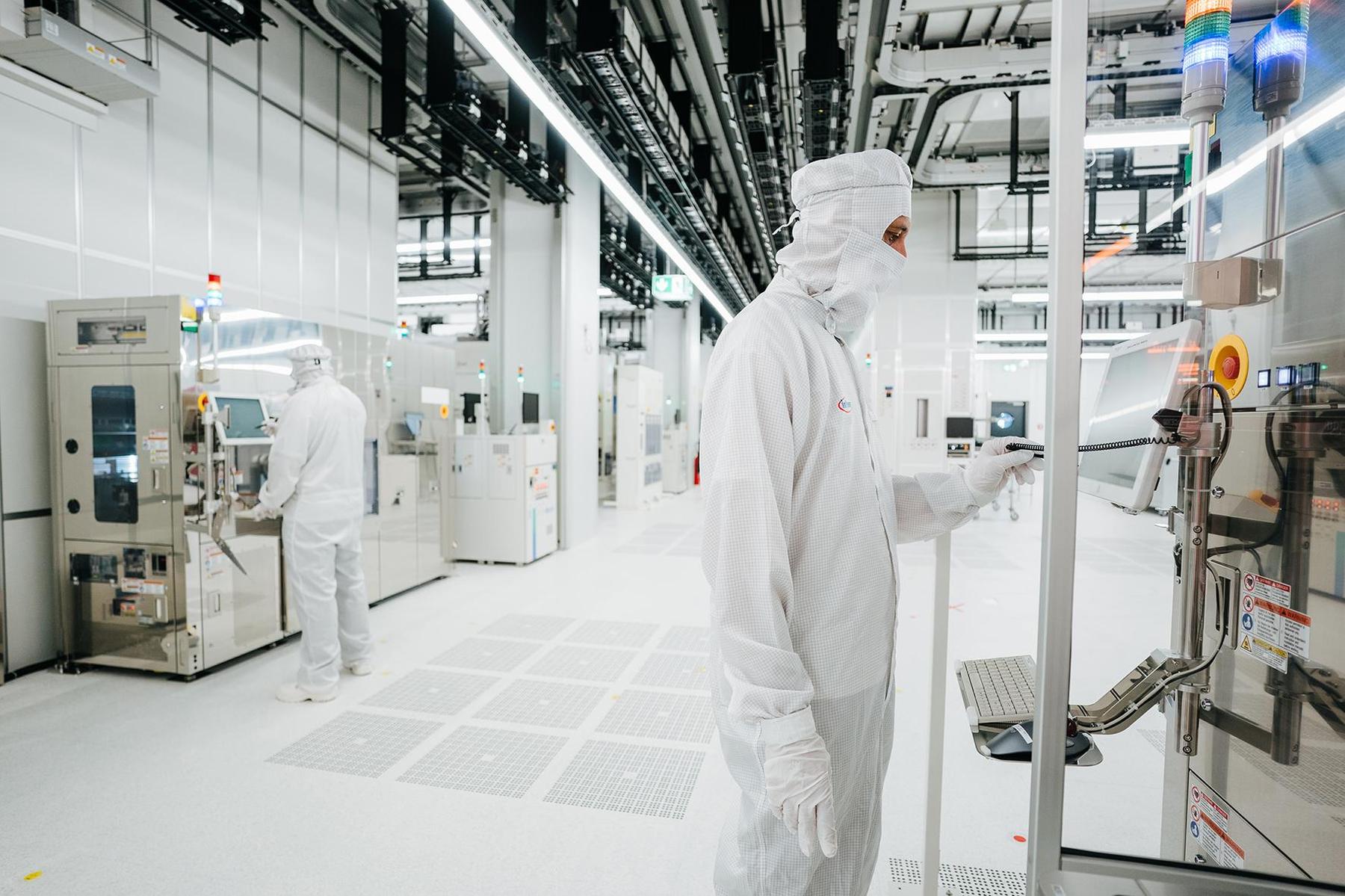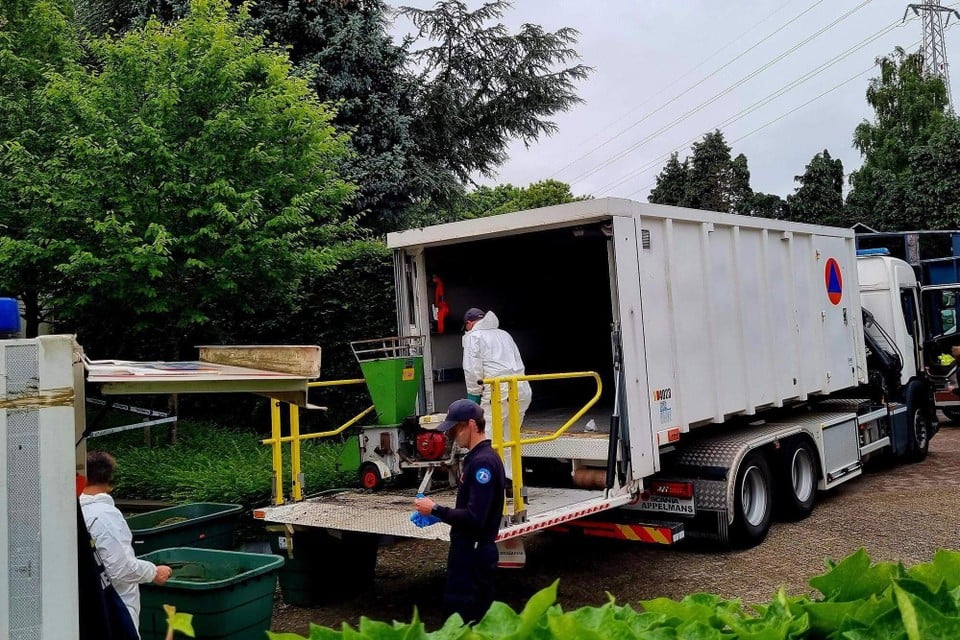The bio-based primary school may not be able to open without a generator in the garden dying
/s3/static.nrc.nl/images/gn4/stripped/data130054604-20bdc4.jpg|https://images.nrc.nl/hj-WOcDK9MCvjtbVA5mq4Hyg-Co=/1920x/filters:no_upscale()/s3/static.nrc.nl/images/gn4/stripped/data130054604-20bdc4.jpg|https://images.nrc.nl/jd3n-yYhPv2RPUwCIe5-1mSELRE=/5760x/filters:no_upscale()/s3/static.nrc.nl/images/gn4/stripped/data130054604-20bdc4.jpg)
The slide in the form of a tunnel tube is already ready in the hall. The toilets with the printers at kindergarten have already been tiled. In a side room, a workman lubricates the kit for the carpet on the floor. The lamp holders are covered with a cardboard that says: ‘Make your carbon footprint tip-toe’. The sockets, the bio-based sockets, are already in the walls. On 3 June, the manager says, the new school building can be delivered in a new construction project in the Hanzewijk van Kampen. Then the students of two primary schools, a Christian and a public, again good classrooms, have an after -school care and a joint gym.
But there is a good chance that there will be no electricity on 3 June in ‘the most circular childcare center in the Netherlands’. And not even on Monday 1 September, when the new school year in Kampen starts, not yet. Network manager Enexis cannot honor the request from the ‘client’, the municipality of Kampen, for energy in the large consumption category. Force majeure, says spokesman Cyriel Hamstra. « This area has transport scarcity. » When power will be delivered, Enexis cannot say.
The background of the scarcity is a major renovation of the power grid in the Netherlands. Throughout the country, in all gradations of energy- high, middle and low voltage- the network is being renewed to be able to meet the increasing need for capacity for both return and decrease in electricity. For example, Enexis has to install 800 distribution stations for medium voltage in the coming eight years, says Hamstra. It will take between fifteen and twenty years for the entire renewal operation to be completed, Enexis expects. Until that time, the network operator will regularly have to sell ‘no’ to applicants.
In Kampen, two social interests collide: that of a robust energy network and that of much -needed new construction. This does not only apply to camps or only to Enexis; Also in the rest of the Netherlands, other network operators regularly come in the news if they have to say ‘no’ to an application with a social interest. Last week, the North Holland network operator Liander informed the municipality of Medemblik that a new neighborhood, with fifty homes, would probably have to wait seven years for electricity. « The obviousness that you build something and then get electricity immediately no longer exists, » says Hamstra.
Paper
This week it became clear that Kampen does not accept this ‘no’. The municipality goes to court to enforce the delivery of electricity. Alderman Energy Transition Erik Faber (GroenLinks) wonders aloud if it is true what Enexis says. Whether there is really no power to deliver. « If you were to build five homes, those homes would just get a power connection. We ask the same volume for this building, and we don’t get it. »
According to Faber, part of the Netcongestie is a paper problem. « We know that companies in their contract sometimes apply for more electricity than they actually purchase. »
What is the most bothering him, says Faber in his office in the town hall, is the little flexible attitude he experiences from Enexis-and he says he hears the same complaint from fellow managers. The municipality has put forward all kinds of alternatives. « And then you miss thinking along in solutions and possibilities. » Especially for social authorities, such as the municipality (which is also co -shareholder of the network operator with other municipalities and provinces). « A municipality is also expected to reason on questions from residents from ‘yes, unless’. Enexis has a bureaucratic glasses on. »
This brought the municipality to the fore, among other things: De Dr. H. Bouwmanschool has already been closed, this summer, primary school Scala will also be closed. Those connections are closed. The buildings demolished. There is no new provision for it. Maybe there will be a house here and there, but the neighborhood is Áf. ” Then there must be electricity?
On The capacity card The region around Kampen, just like almost the entire west of Overijssel, is red, the region around Kampen is red. ‘Deficiency of transport capacity with queue’ means that according to legend. Hamstra says that it is being eliminated on the basis of the prioritization list of the Netherlands Authority for Consumers and Markets. At the top of the list of large consumers are institutions such as hospitals and fire brigade. Educational institutions are lower. Hamstra wants to have said that he also finds the childcare center in Kampen a « harrowing case ». « It’s a very nice project. »
The last proposal from Kampen, conceived by an inventive official from Faber: let’s then delete the application for that one large consumer spot and switch to three small-consumption applications. There is still room for that on the net, and according to the municipality, the building will soon consist of three different entities. If you submit new applications, they will be at the bottom again, Faber heard. Asked for an explanation, Cyriel Hamstra says on behalf of Enexis: « You cannot request several small user connections instead of one large consumer connection. You can only request one connection per WOZ object. »
That was mid -January for the Mayor and Aldermen College, supported by the school boards, the time to let his contact person at Enexis know that the municipality would leave the discussions to the lawyer and that Kampen sent in summary proceedings. « We think we have a strong point, » says Faber.
But when it comes to legal proceedings, Enexis does have some experience. The network operator usually wins his cases because the judge goes along with the appeal to force majeure. In one of the rare things that it lost, Enexis had to reimburse the costs of aggregates in 2024, with which an applicant had bridged the time to connect.
Playground
Faber knows that Enexis often wins. « But usually they beat companies, » he says hopeful. Is he not afraid that he will disrupt the relationships with the regional streamonopolist? « Not that, but I have worried about resolving the Netcongestie. » A large extension is planned on the other side of the N50: 3,600 homes. « I am curious if they will soon say: no, it will not work. »
He says that Kampen is always constructive in the energy transition, as with the seven windmills that are planned within the municipal boundaries. According to him, this willingness is not rewarded with generousness on the other side. « Then it is said that you cannot compare such things. »
/s3/static.nrc.nl/images/gn4/stripped/data130054621-a623e5.jpg|https://images.nrc.nl/flASRKcpI6pN5VfnLPtloqaD300=/1920x/filters:no_upscale()/s3/static.nrc.nl/images/gn4/stripped/data130054621-a623e5.jpg|https://images.nrc.nl/7wO9UJQgDJzWVK6KQJo1Nkkltbg=/5760x/filters:no_upscale()/s3/static.nrc.nl/images/gn4/stripped/data130054621-a623e5.jpg)
But for him, the relationships with Enexis are secondary to the importance of education. « I stand for the children in this neighborhood, » says Faber.
Director Cora van Unen is approaching the busy playground of the Scala Baseschool, which is located behind the new building in the Hanzewijk. She often works at home, she says, because the school has sacrificed the most office space for classrooms for the children. « We have grown from 39 to 270 students in ten years. »
She loves this building, the atmosphere, the spatiality. But the substructure no longer fits in. The toddlers have been in another school building for three years. And when it rains, the central space is full of buckets here to absorb the leakage water.
The teachers and the parents all look forward to the new building, where all children can sit together again. Van Unen has won intensively with the architect. What a sof that such a beautiful and important building cannot get electricity, she says. « You have to imagine: such a building, everything bio-based, everything is circular, and soon there may be a generator in the garden. »

:format(webp)/s3/static.nrc.nl/wp-content/uploads/2025/06/05163439/data133217982-f902a2.jpg)
/s3/static.nrc.nl/wp-content/uploads/2025/06/06205808/web-0606BINspermadonatie.jpg)
/s3/static.nrc.nl/images/gn4/data133317775-d0126f.jpg)




